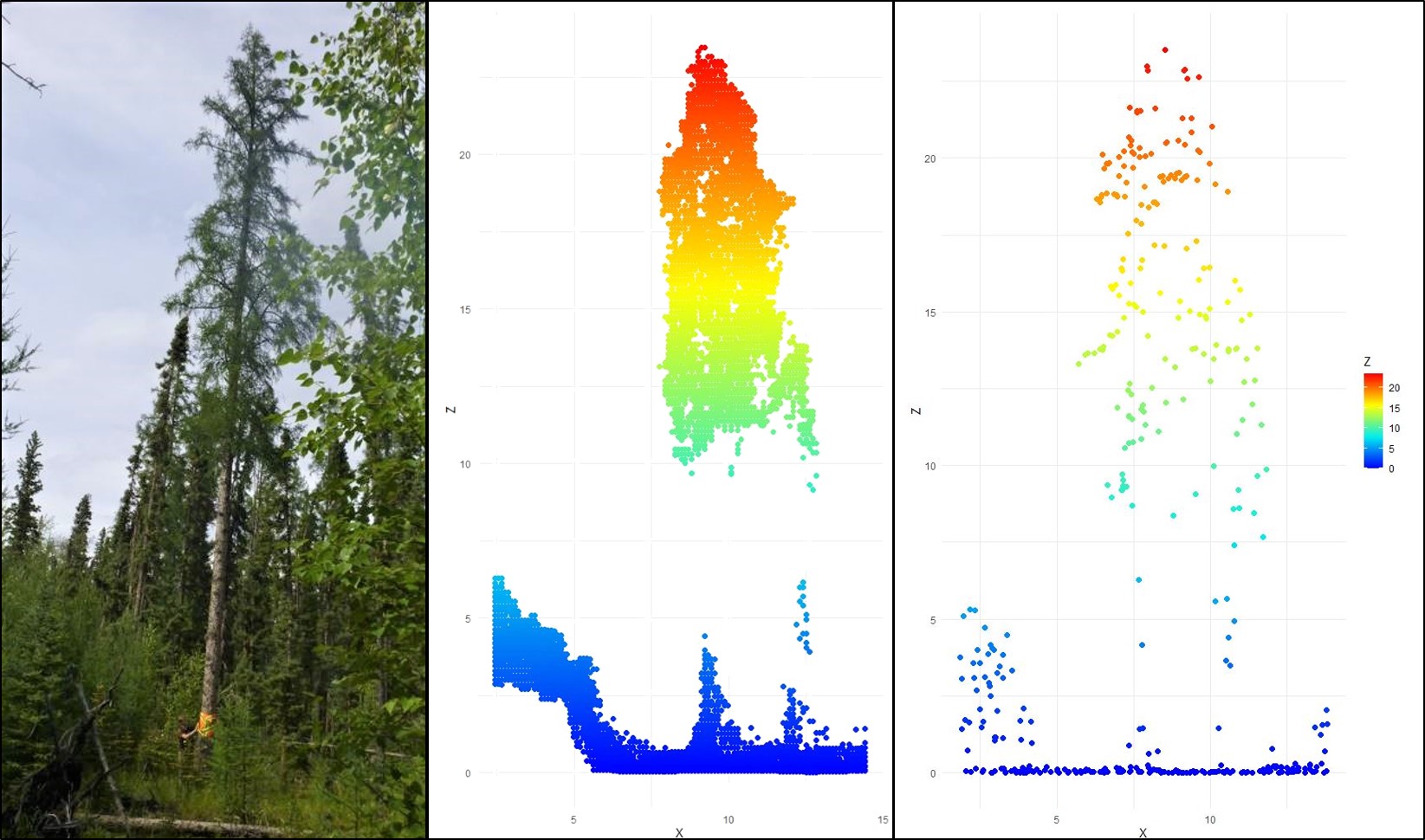We’re excited to announce Melanie Dickie as the winner of the 2023 Georgina Mace Prize, celebrating the best article in the journal by an author at the start of their career.
Winner: Melanie Dickie
About the research
For many species at risk, population declines can be traced back to habitat and therefore, at the most basic level, management requires an understanding of current habitat status and it changes over time. But often habitat inventories at appropriate scales are logistically difficult and cost-prohibitive, and anthropogenic habitat alterations are continuously on the rise.
In this study, Melanie Dickie and colleagues capitalise on the exciting developments in remote-sensing tools for ecological research by applying multiple remote sensing tools to collect data on vegetative habitat associated with threatened woodland caribou (Rangifer tarandus caribou) in the boreal forests of Canada. They use semi-automated and manual methodologies to fuse photogrammetry point clouds (PPC) from high resolution aerial imagery with wide-area light detection and ranging (LiDAR) data to quantify vegetation structure and validate their remotely collected data with multiple, more traditional measures to demonstrate their accuracy.

The Editors were impressed by the wide-ranging application of the study for monitoring long-term patterns of vegetation across multiple scenarios, temporal, and spatial scales, including tracking changes related to climate change, wildfires, post-disturbance recovery and habitat restoration. Lead Editor Professor Carolyn Kurle highlighted how the article is a terrific contribution to the ongoing effort to understand and decelerate habitat and species biodiversity around the world.
About the winner

Melanie has been interested in the natural world for as long as she can remember, spending her childhood outdoors never wavering from these early interests. She leaned into the world of ecology and predator-prey interactions from her undergraduate studies before developing an appreciation of the role of habitats underneath those interactions through her masters and doctoral studies. Melanie now works on understanding how habitat changes influence predator-prey interactions and what tools scientists can use to measure each of the links in the chain, tying those small details to the bigger picture.
Find the winning article: “Applying remote sensing for large-landscape problems: Inventorying and tracking habitat recovery for a broadly distributed Species At Risk”, as well as the shortlisted papers for the 2023 Georgina Mace Prize in this virtual issue.

One thought on “Georgina Mace Prize 2023: Winner announced for early career researcher award”